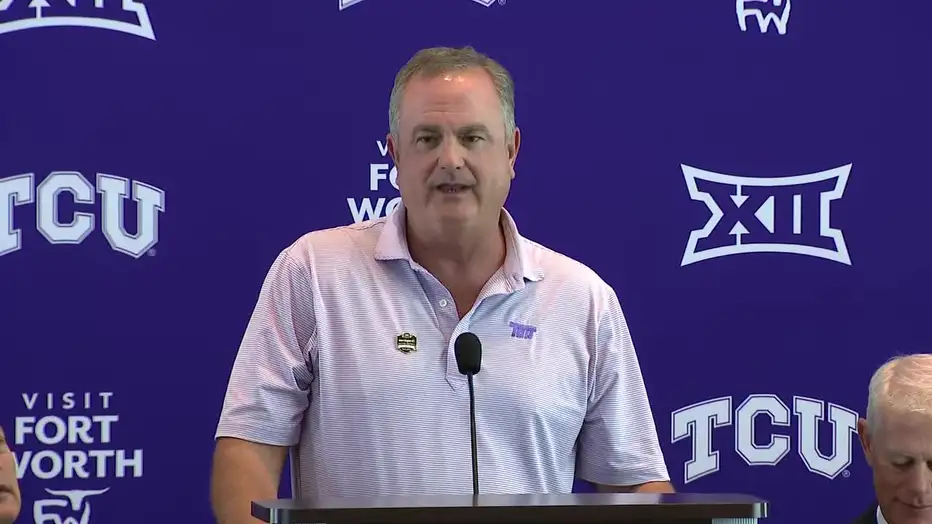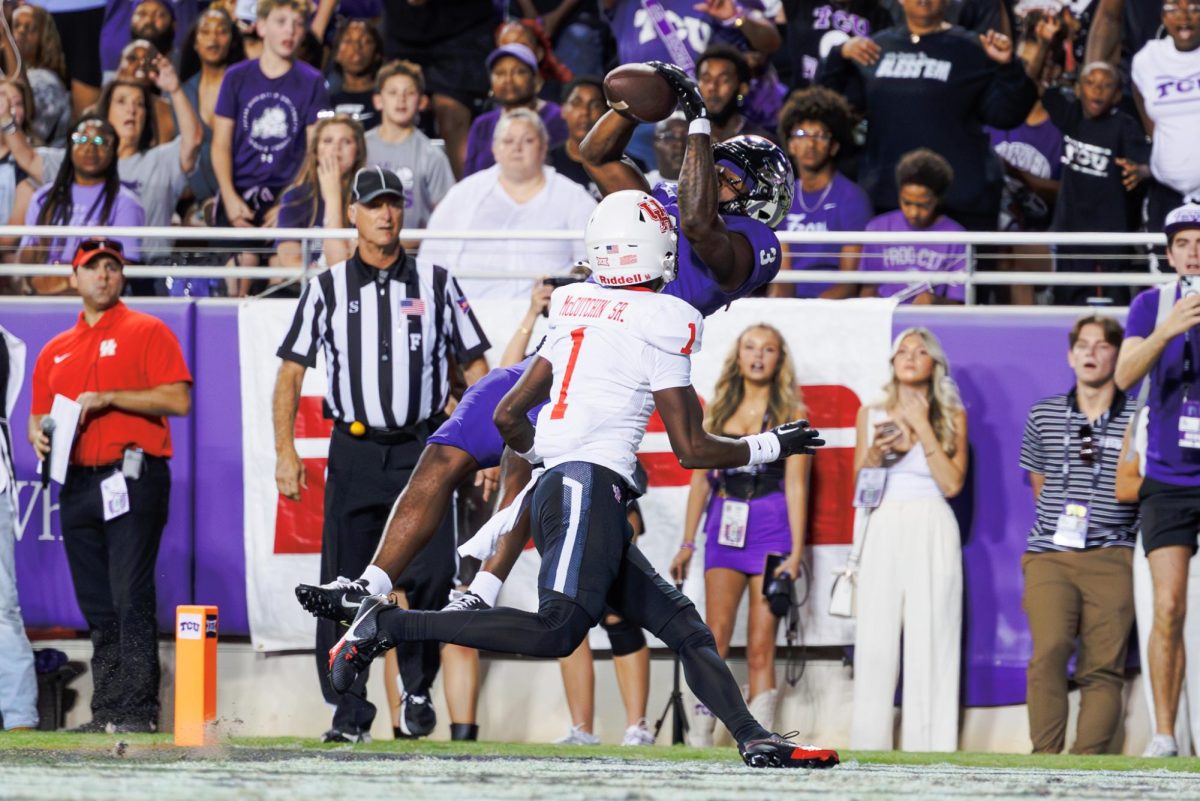He may have used the tired cliche at almost every press conference this season, but head coach Gary Patterson is serious: He’s going to “grow up” his football team.
After losing more than 20 players to academic issues, injuries and law infractions, Patterson has had to rely on playing 28 freshmen, 16 of which are true freshmen. The numbers tie TCU with LSU and North Carolina for the most freshmen played in the nation.
Only one senior is healthy and on Patterson’s three-deep defensive depth chart: linebacker Kenny Cain.
Offensively, Patterson has had to heavily rely on his fourth and fifth string running backs, B.J. Catalon and Aundre Dean over the season. He has had to start a redshirt freshman at quarterback for all but one conference game. He only has two seniors on his offensive line. His kicker and punter are both true freshmen.
And all of this is happening in TCU’s debut season in the Big 12.
Any program under these circumstances would struggle to fight competitively on the field. Somehow, though, Patterson has guided his team to bowl eligibility, seven wins (including a 20-13 over the University of Texas on Thanksgiving) and kept his team either in the Top 25 rankings or the "receiving votes" category throughout the entire year.
For Patterson, though, the season goes far beyond how the Horned Frogs perform on the field.
“For all of you that think it’s always about wins and losses — wrong.” he said during his Oct. 9 press conference. “It’s about the kids.”
Patterson often mentions how the 125 players on his team are part of “his family” and how football is only a part of a player’s character. When quarterback Casey Pachall came out for a public apology regarding his failed drug test, Patterson made his stance known on what he believes his duties at TCU to be.
“I’m in the job of growing up young people,” he said.
Patterson stood true to his word. When Pachall was arrested on a DWI charge, Patterson didn’t abandon him or, conversely, let him get away with the infraction.
Instead, Patterson donated $100,000 to a drug and alcohol recovery support group on campus and showed, once again, his commitment to developing people.
“If you have a son or daughter and they screw up, do they quit being yours because you’re upset with them?” he said on the issue. “What you need to understand is that he is a football player to you. He is somebody’s son to me.”
For Patterson, football is just one component of the men he coaches from season to season. As a whole player, Patterson wants to take those “sons” and turn them into leaders and citizens.
Jesse Hejny, a 2005 alumnus and a former defensive lineman under Patterson, said he feels Patterson’s coaching made him into one of those leaders.
Originally a junior college transfer from California, Hejny teamed up with another former football player, former punter and class of 2005 graduate Bryan Cortney, to start his own oil and gas leasing business after their graduations. Their business, Purple Land Management LLC, has more than 40 employees, hundreds of contracted foremen and more than 6,000 oil and gas leasing contracts to its name.
Although Hejny spent his time at TCU predominantly as a back-up player, he said his development as a person and a businessman came from the TCU coach.
Hejny said he approaches his business in a similar way Patterson conducted his practices. Instead of focusing on his top players and his third-string players, Patterson would put special focus on the backup players, Hejny said. He specifically mentioned how first-string players would get the same amount of snaps and playing time as other players in spring practice, while backups would get twice the amount of playing time.
“Those guys are just one play away from being put in the limelight,” Hejny said. “You need to develop them for the depth of the team. It’s not about individuals, it’s about the entire team.”
“Likewise, my top guys also know what they need to do," he said. "If I focus on them only, I lose the rest of my company.”
Hejny also said he models his executive powers as a business owner to the same way Patterson manages his football team.
“Patterson was always a no-nonsense guy who didn’t sugar-coat anything,” he said. “Whether it’s the football field, life or how they conduct business. We do the same thing with our company.”
Hejny said keeps a sign in his office of a quote Patterson said repeatedly to him: “If you work hard, and do the right thing, it doesn’t guarantee you anything. All it does is give you a good chance.”
When asked about whether he would repeat his experiences as a backup at TCU or start at a program like Oklahoma or Texas, Hejny said he’d repeat being at TCU’s program “100 out of 100 times.”
“I wouldn’t have become the person I am today,” he said. “I wouldn’t have had those connections and I wouldn’t have grown up into the overall individual and person I am now.”
“The guys who come out of [Patterson’s] program are better equipped and come out with better life skills.”
For Gary Patterson, that’s exactly what it means to “grow up” his players.




